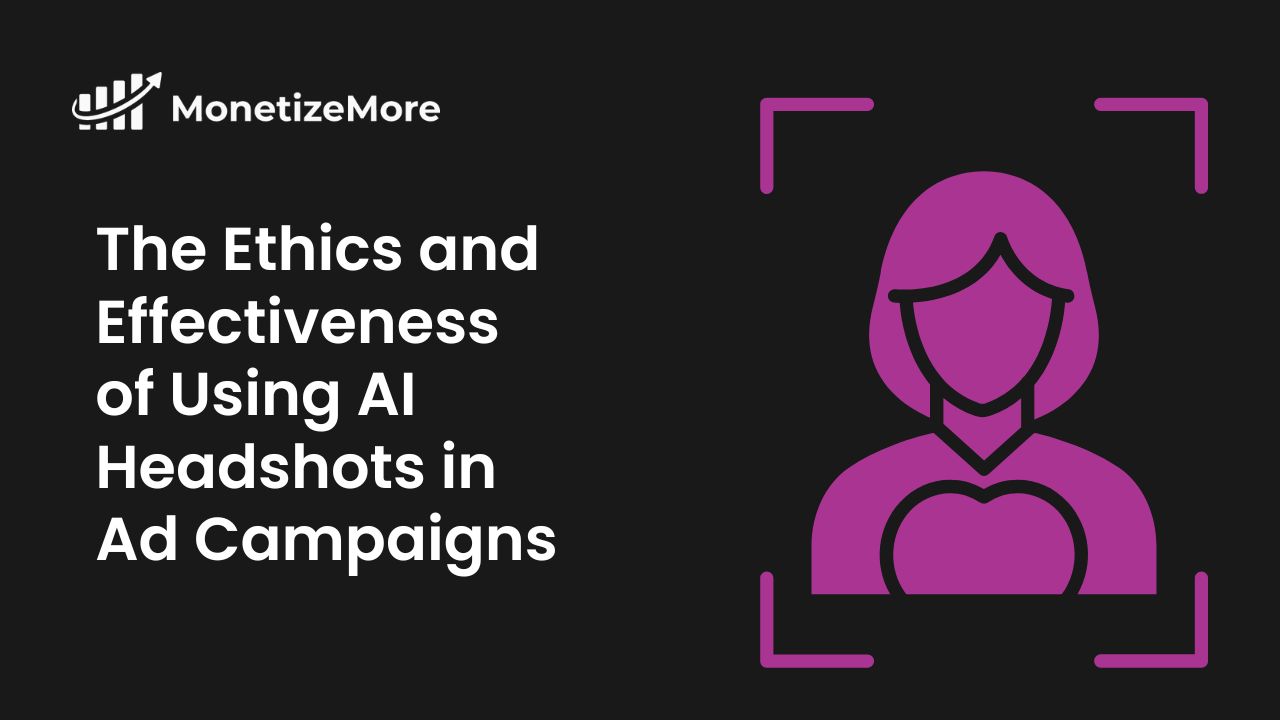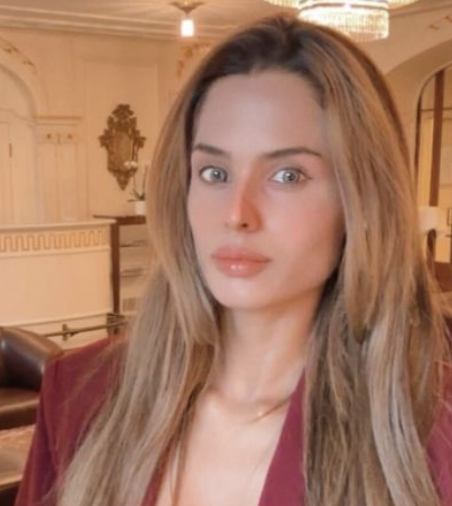Sign up today and see the results for yourself!
Want to speed up your verification process?
Share a screenshot of your ad revenue from the past 3 months.

This post was most recently updated on June 11th, 2025
Artificial intelligence (AI) technology has become a significant boon for businesses across all sectors. The four biggest technology companies alone are expected to spend $300 billion on AI this year, but the total market size is exponentially higher than that.
One of the latest ways that businesses are embracing AI is through AI headshots. A recent survey found that 44% of people are open to using AI-generated headshots. Many brands are also embracing them for various reasons, including optimizing their advertising campaigns.
This has created some interesting discussions about the tradeoffs of this new technology. Some brands believe that AI-generated headshots can significantly enhance their campaigns, while others consider there to be ethical and practical risks associated with them. Keep reading to learn more about this discussion.
There are some clear reasons why AI headshots can be great for brands trying to run advertising campaigns. Some of these benefits are listed below.
Many companies are operating on tight budgets these days, especially in light of the new economic changes that occurred this year. A lot of companies don’t want to pay a ton of money to hire professional photographers. Since the average photographer charges around $250, this is understandable.
The good news is that AI-generated headshots offer a more affordable alternative to traditional photography services. Some popular AI headshot services charge as little as $35 for headshot photos, which can be at least 80% less than what a photographer would charge.
Many marketing campaigns rely on a high volume of creative assets. Marketers often want to split-test different images to see which gets the best engagement. In the past, they would need to either take numerous photos or pay for the licensing rights to a large number of stock photos. This would either be very expensive or require a considerable amount of time.
This is not nearly as much of an issue when they are using AI headshot services. They can create dozens of photos for a fraction of the cost in a matter of minutes. This makes it easier than ever to create highly scalable marketing campaigns.
Marketers have to use different creatives on various marketing platforms. They may often need to use different photos if they are testing a lot of other creatives. Unfortunately, they can become desperate for new images and may not take enough time to ensure that they align with their brand identity.
This is another excellent reason many marketers are using AI headshots. They help them create a large number of photos that are consistent with their branding strategy. They can do this to get more bang for their buck without hurting their brand image.
Unlike traditional photography, AI-generated faces typically don’t require model releases, unless they replicate a real person’s likeness. This simplifies compliance for performance advertisers.
As you can see, there are a lot of great reasons to consider using AI headshots for branding. However, there are also some ethical considerations that brands must take into account. A couple of them are listed below.
Many people are concerned about AI because they believe it poses a threat to the jobs of creative professionals, including photographers. Some marketers may be wary of going AI mode for this purpose because they don’t want to be complicit in this.
One woman recently wrote an article talking about the impact that AI headshots had on her life. She said that she has struggled with body dysphoria in the past, and the AI headshot service worsened it. The issue was that the service made her much thinner than she was, which made her feel bad about herself.
As AI becomes more prevalent, audiences may grow skeptical of overly polished, synthetic imagery. Transparency is key. Governments and ad platforms are tightening rules on AI disclosure:
Many advertisers are starting to appreciate the benefits of using AI headshots. Portrait Pal is one of the newest services they have introduced, which helps create amazing photos in as little as three hours.
AI headshots are changing advertising, but for publishers, the focus should stay on delivering real, high-value traffic. By blocking bots with Traffic Cop and staying ahead of policy trends, publishers can ensure AI-driven ad optimization benefits their bottom line.

With over ten years at the forefront of programmatic advertising, Aleesha Jacob is a renowned Ad-Tech expert, blending innovative strategies with cutting-edge technology. Her insights have reshaped programmatic advertising, leading to groundbreaking campaigns and 10X ROI increases for publishers and global brands. She believes in setting new standards in dynamic ad targeting and optimization.
10X your ad revenue with our award-winning solutions.